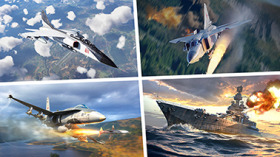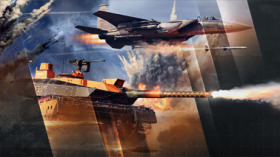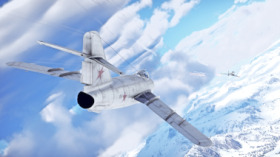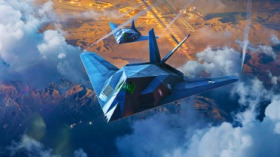
- Для PC
- Для Mac
- Для Linux
- ОС: Windows 10 (64 bit)
- Процессор: Dual-Core 2.2 GHz
- Оперативная память: 4 ГБ
- Видеокарта с поддержкой DirectX версии 11: AMD Radeon 77XX / NVIDIA GeForce GTX 660. Минимальное поддерживаемое разрешение – 720p.
- Сеть: Широкополосное подключение к Интернету
- Место на жестком диске: 23.1 Гб
- ОС: Windows 10/11 (64bit)
- Процессор: Intel Core i5 или Ryzen 5 3600 и выше
- Оперативная память: 16 ГБ
- Видеокарта с поддержкой DirectX 11 и выше: Nvidia GeForce 1060 и выше, Radeon RX 570 и выше
- Сеть: Широкополосное подключение к Интернету
- Место на жестком диске: 75.9 Гб
- Операционная система: Mac OS Big Sur 11.0
- Процессор: Core i5, минимум 2.2GHz (Intel Xeon не поддерживается)
- Оперативная память: 6 Гб
- Видеокарта: Intel Iris Pro 5200 (Mac) или аналогичная видеокарта AMD/Nvidia для Mac (минимальное поддерживаемое разрешение – 720p) с поддержкой Metal
- Место на жестком диске: 23.1 Гб
- Операционная система: Mac OS Big Sur 11.0
- Процессор: Intel Core i7 (Intel Xeon не поддерживается)
- Оперативная память: 8 Гб
- Видеокарта: Radeon Vega II и выше с поддержкой Metal
- Место на жестком диске: 75.9 Гб
- Операционная система: Современные дистрибутивы Linux 64bit
- Процессор: Dual-Core 2.4 ГГц
- Оперативная память: 4 Гб
- Видеокарта: NVIDIA GeForce 660 со свежими проприетарными драйверами (не старее 6 месяцев) / соответствующая серия AMD Radeon со свежими проприетарными драйверами (не старее 6 месяцев, минимальное поддерживаемое разрешение - 720p) с поддержкой Vulkan
- Место на жестком диске: 23.1 Гб
- Операционная система: Ubuntu 20.04 64bit
- Процессор: Intel Core i7
- Оперативная память: 16 Гб
- Видеокарта: NVIDIA GeForce 1060 со свежими проприетарными драйверами (не старее 6 месяцев) / Radeon RX 570 со свежими проприетарными драйверами (не старее 6 месяцев) с поддержкой Vulkan
- Место на жестком диске: 75.9 Гб
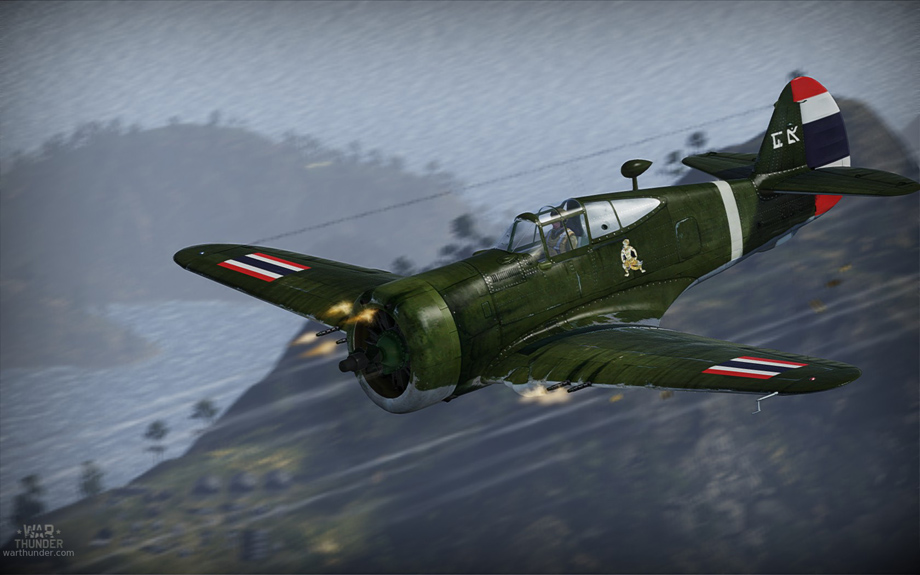
Royal Thai Hawk 75N in historical early 1941 green camouflage, made by Hyenaz | download here
In 1913 three Thai army officers were dispatched to France to become their nation’s first pilots. After completion of their training the three returned to Siam in November along with four Breguets and four Nieuport IVs in shipping crates. This marked the unofficial beginning of the what would eventually become the Royal Thai Air Force. Marking its 101st year of continuous operations this year, it is one of the oldest air forces in Asia and has a rich and storied history.
After seeing a February 1911 air display by Belgian pilot Charles Van Den Born at the Sa Pathum Horse Racing Course, the leadership of then Siam was astute enough to see the potential of aircraft. By the following year all arrangements were complete with the then aeronautical superpower, France, to train three officers in flight. From there it grew in size and importance as a branch of the Siamese army, eventually becoming an independent service in 1937 as the Royal Siamese Air Force. In 1939 the ethnic Thai came to power so the name was once again changed to the Royal Thai Air Force and has been ever since.
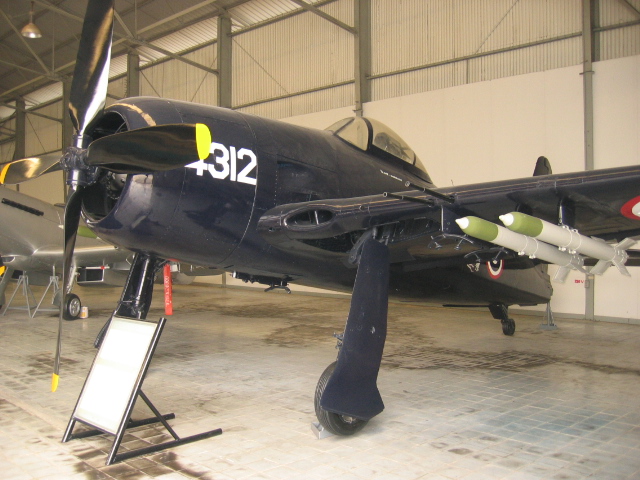 |
| Grumman F8F-1 Bearcat at the Royal Thai Air Force Museum |
Apart from a very minor involvement in the First World War and the Siamese coup d'état of 1932 the air force quietly continued to grow and evolve by acquiring military equipment produced by other nations. These acquisitions resulted in what was to be a supremely ironic mixture of British and German ground equipment and a mix of American and Japanese aircraft, including the Vought O2U Corsair, Curtiss BF2C Goshawk, Curtiss Hawk 75N (P-36), Martin 139 (B-10), Nakajima Ki-27 “Nate”, Nakajima Ki-43 Hayabusa “Oscar”, Mitsubishi Ki-21 (Type 97 Heavy Bomber) “Sally”, Mitsubishi Ki-30 “Ann”, Nakajima E8N “Dave”, Mitsubishi F1M “Pete”, Tachikawa Ki-9 “Spruce”, Tachikawa Ki-36 “Ida”, and few of others.
When France was defeated in Europe, Thailand took the opportunity to reclaim lands lost to French colonial expansion decades earlier which Thai’s land and air forces proved easily able to cope with. Despite initial successes, victory was not forthright and Japan, looking to gain as well, negotiated a treaty between the two that was very favorable to Thailand, and Japan.
While friendly with Japan, Thailand was not an ally and resisted initial prompting from the Japanese to provide bases for their plans on 8th December 1941 to attack British colonies. No match for the Japanese and with strong benefits to cooperate instead, a few hours after hostilities started the Thai leaders capitulated and granted access and later alliance agreements with the hope to further boost Thailand's prominence in region.
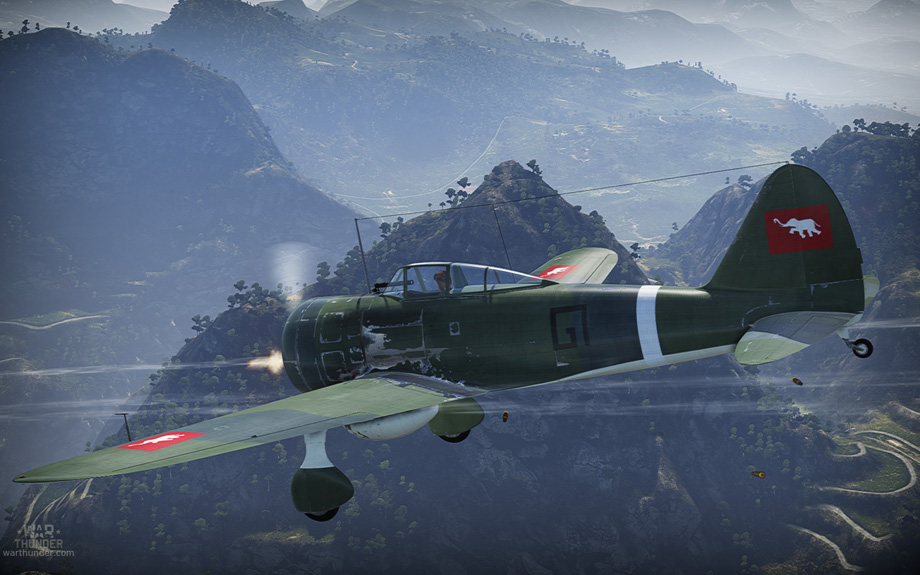 |
| Ki27 with Royal Thai Air Force markings skin made by Thorvald_Gerwulf |
The allies largely bypassed Thailand to defeat Japan and growing resentment to the Japanese “guests” caused internal political upheavals and changed outside perceptions toward Thailand from participants in war. The success of organized resistance and political connections helped Thailand gain favor with the west and the nation was able to access large inventories of post war aircraft. Soon the Royal Thai Air Force was equipped with the latest F8F’s, SB2C Helldiver, Fairey Fireflies, Spitfire Mk. XIV, among others.
When the Vietnam war escalated Thailand's air force was a preferred base by the USAF to launch overt and clandestine military missions as well as humanitarian aid, resulting in a huge expansion in size and newer equipment. Thailand itself was involved in Vietnam and later in Cambodia and Laos from those internal conflicts
Today Thailand has a small but powerful air force with a huge variety of types from very old designs like the Aero L-39ZA Albatros, Alpha Jet A, updated C-47 (BT-67), and T-41D (Cessna 172) to modern jets like Saab JAS 39 Grippen and Eurocopter EC725 helicopter, and a history of military aviation to be proud of.
Author: Joe "Pony51" Kudrna
In one of the future updates, we will introduce Royal Thai Air Force marking, similar to those visible on Ki 27 picture.
